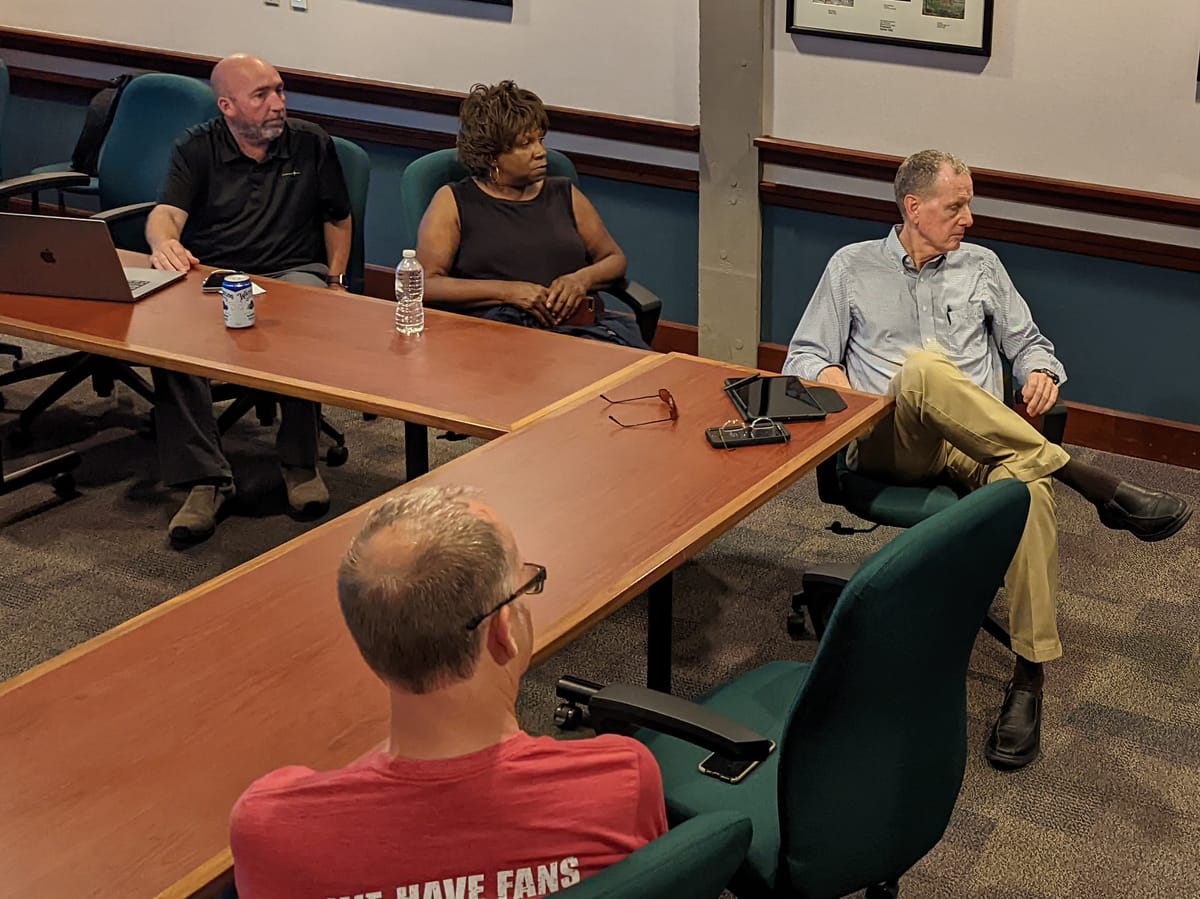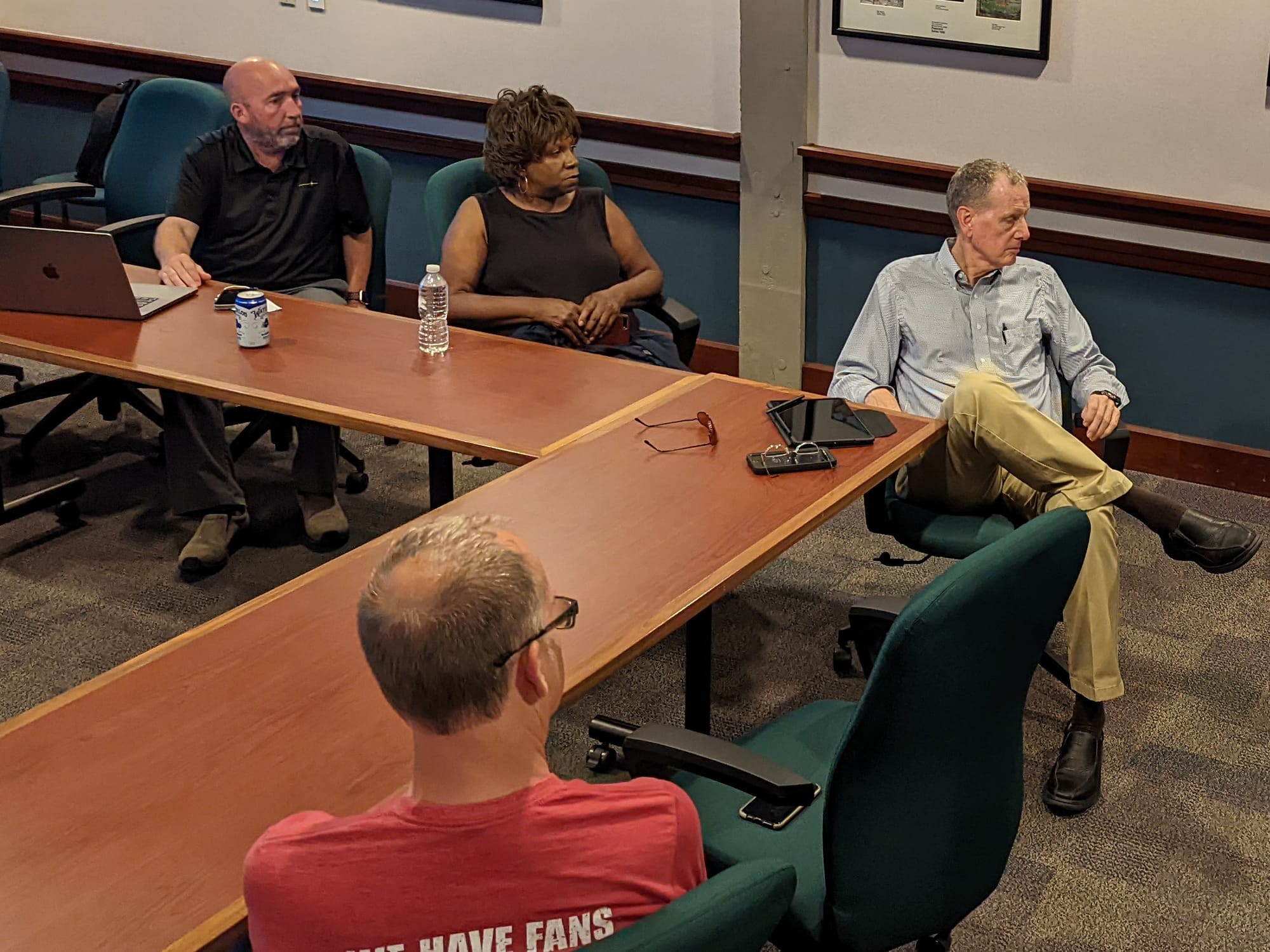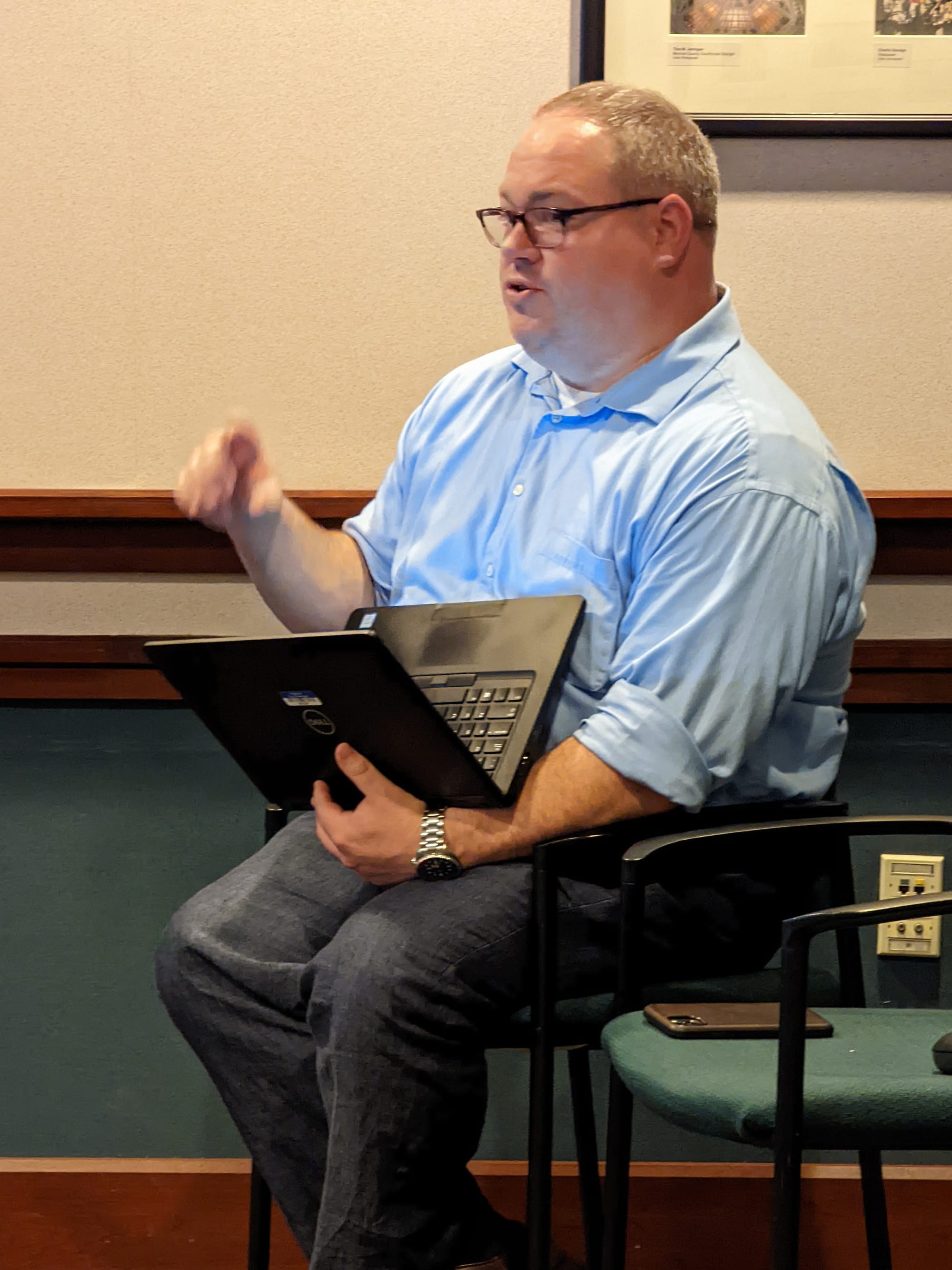Two down, one to go: High-speed internet deal gets OK from Bloomington EDC



On Tuesday, Bloomington’s economic development commission (EDC) helped a potential deal between Paris-based Meridiam and the city of Bloomington take another step forward.
Under the arrangement, Meridiam would construct a fiber-to-the-home open-access network offering symmetric 1-Gigabit service. Meridiam would offer symmetric 250-Megabit service to low-income residents at zero net cost.
On a 4–0 vote, the EDC approved a resolution that among other things green-lighted an expenditure agreement that reimburses to Meridiam 95 percent of the roughly $10.9 million in personal property taxes that Meridiam will pay over a 20-year period.
The personal property taxes would be paid on the company’s conduit and fiber. The mechanism the city is using to reimburse Meridiam’s taxes is a tax increment finance (TIF) allocation area, not a tax abatement, even if the effect is basically the same.
The TIF area is exactly the physical space where the conduit and fiber is installed, which has an appearance that some have characterized as web-like. That’s what gives rise to the moniker “spider TIF.”
For Tuesday’s decision, the five-member EDC was missing Matt Flaherty. He is the city council’s representative on the EDC. But Flaherty will have a say when the city council considers two related questions on Wednesday.
That’s because a third step for the high-speed internet deal is teed up for Bloomington’s city council at its Wednesday meeting.
On Wednesday, the city council will be asked to approve the expenditure agreement, like the EDC did. In a separate vote, the city council will also be asked to approve and issue an order of the Bloomington plan commission. The order was approved at the plan commission’s Monday’s meeting.
On Monday, the plan commission found the arrangement’s economic development area and plan to be consistent with the city’s comprehensive plan.
Released on Tuesday in a supplement to the city council’s meeting information packet, was a draft of the master development agreement (MDA) between Bloomington and Meridiam.
It’s expected to be signed in the next week or so. Construction is expected to begin later this year, with the first subscribers using the network before the end of the year.
The MDA is between Bloomington and Hoosier Networks, LLC. Meridiam formed Hoosier Networks on Aug. 31, shortly after a letter of intent (LOI) with Bloomington was signed. The announcement about the LOI came from the city of Bloomington about two and a half months later.
Hoosier Networks is categorized by the state of Indiana as a foreign limited liability company, formed under Delaware state law.
The vote by the EDC did not appear to be in serious doubt, partly because some of the wording of the resolution was changed from the version that had been included in the meeting information packet.
The original wording, which did not appear to be plausible given Bloomington’s market, read like this:
The Commission hereby determines that the Project will not have a material adverse competitive effect on any similar facilities already constructed or operating in or near the City.
At the start of the meeting, assistant city attorney Larry Allen told EDC members that the wording had been changed to make a softer claim, namely that the EDC had considered the material adverse competitive effect on similar facilities.
Allen put it like this: “It’s not a required finding under the statute. And actually what the statute calls for is that you all consider any potential material adverse competitive effect on any similar facilities already constructed in Bloomington.”
A question from Geoff McKim, who is the county council’s representative on the EDC drew out the fact that the expectation is to take business away from existing internet service providers (ISPs) like Comcast, AT&T, and Smithville.
For at least five years, an as-yet-unnamed ISP will have exclusive access to the open-access wholesale network that Hoosier Networks builds. But that ISP can get a two-year extension if it hits some performance metrics, which include 35-percent market penetration.
McKim asked if that 35-percent target could be achieved just by connecting subscribers who were not currently connected at all. Meridam’s director of digital infrastructure, Scott Layman, responded to McKim’s question: “We would come in, and we would expect to take a percentage of the business from the existing service providers.”
McKim also asked about a completely different approach that would not require a private partner. He asked Bloomington IT director Rick Dietz, “Did you do any kind of financial analysis with respect to the alternative of making this a municipally-owned broadband utility?” McKim re-phrased the question in a way to put a sharper point on it: “How much money is being left on the table by not doing it ourselves?”
Dietz told McKim the option of pursuing a Bloomington-owned broadband utility had been weighed, but was not considered to be viable. What could make a municipality-owned venture successful is city ownership of the electric utility, Dietz said.
A city that owns its own electric lines and poles can use the same poles to string fiber, without having to negotiate with the electric company. But Bloomington does not operate its own electric service. So it can’t take advantage of that potentially complementary infrastructure.
Meridiam plans to use a combination of aerial fiber, strung between utility poles, and underground construction.
The other factor cited by Dietz is that successful municipal broadband systems are in states that are not adversarial to municipal broadband. Based on comments in other public meetings, Dietz considers Indiana’s General Assembly to be hostile to the idea of municipal broadband. On Tuesday, Dietz said, “I think the risks involved in that kind of undertaking in Indiana are pretty high.”
McKim drew out the fact that by signing the MDA, Bloomington would not be signing away the chance to establish a municipally-owned fiber network, if circumstances made that feasible.
Bloomington’s Wednesday city council meeting starts at 6:30 p.m.
Provisional Map of Meridiam Network




Comments ()